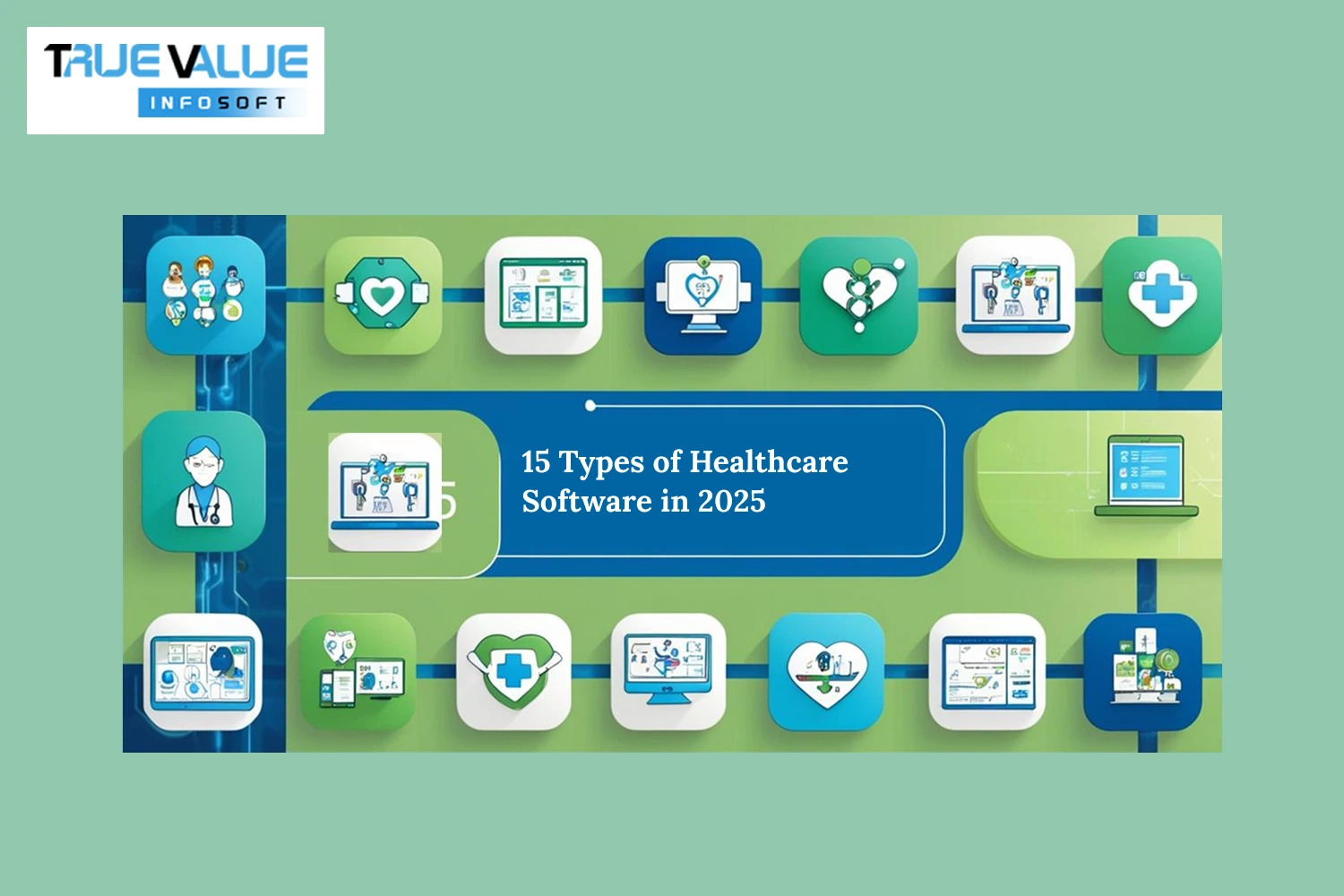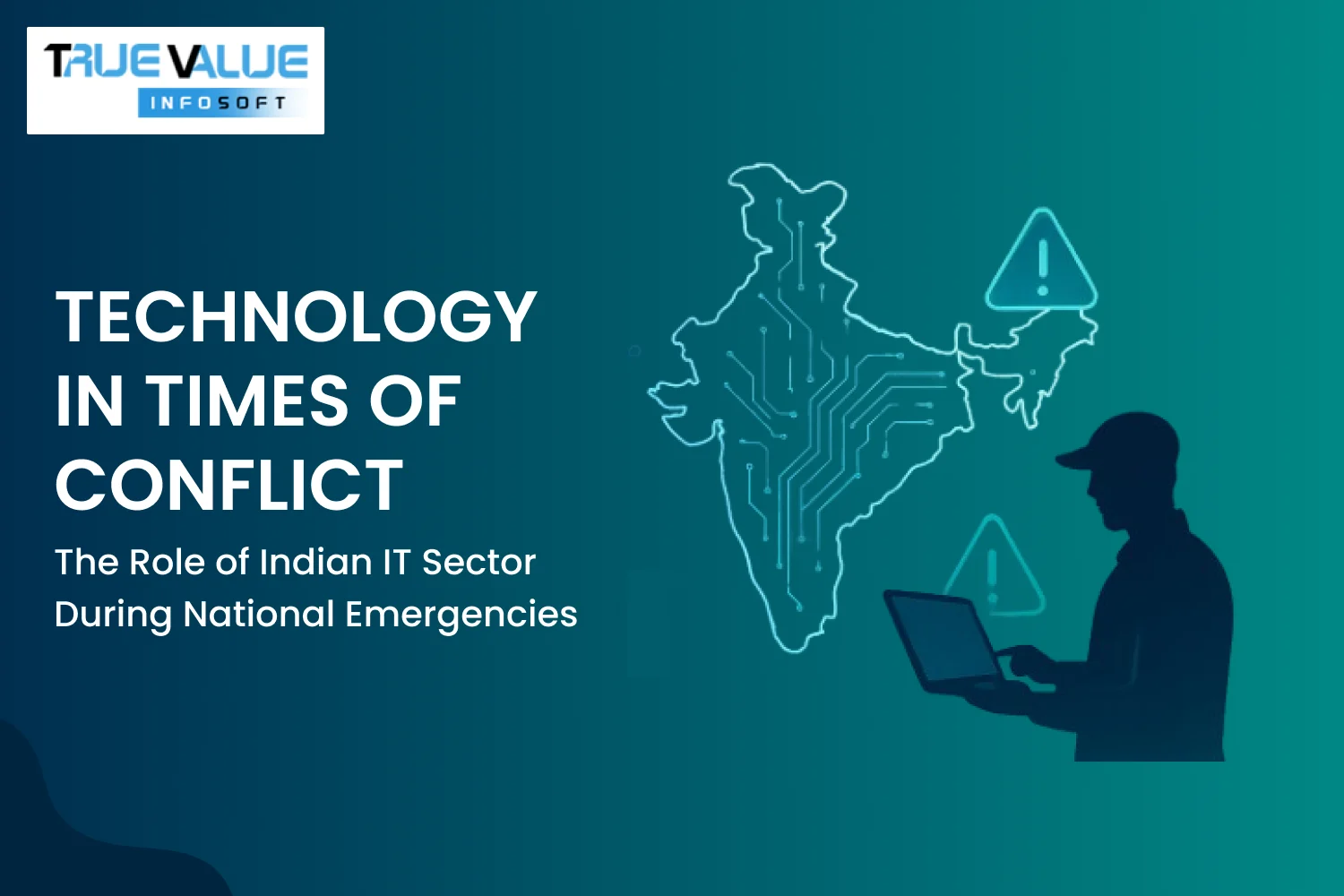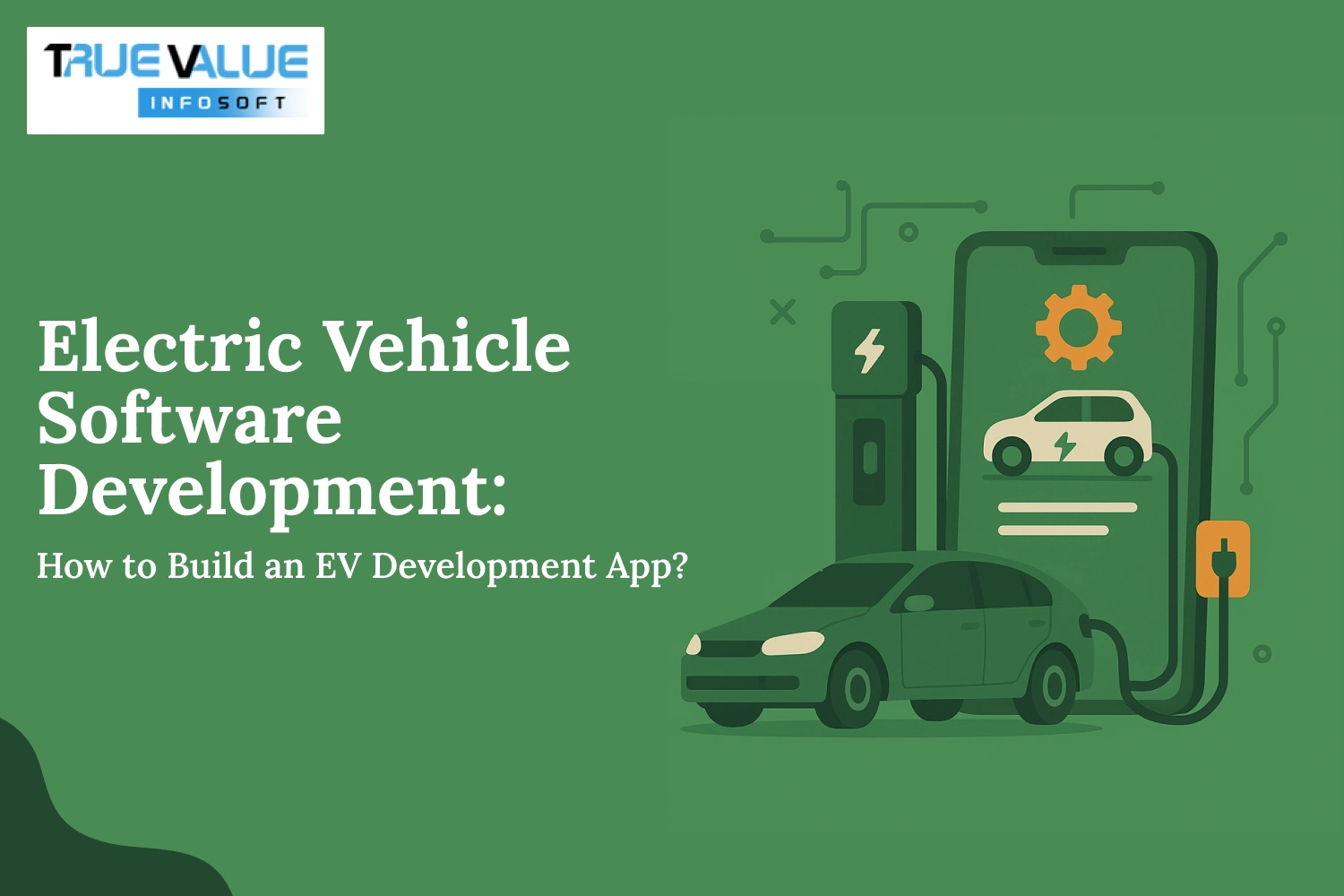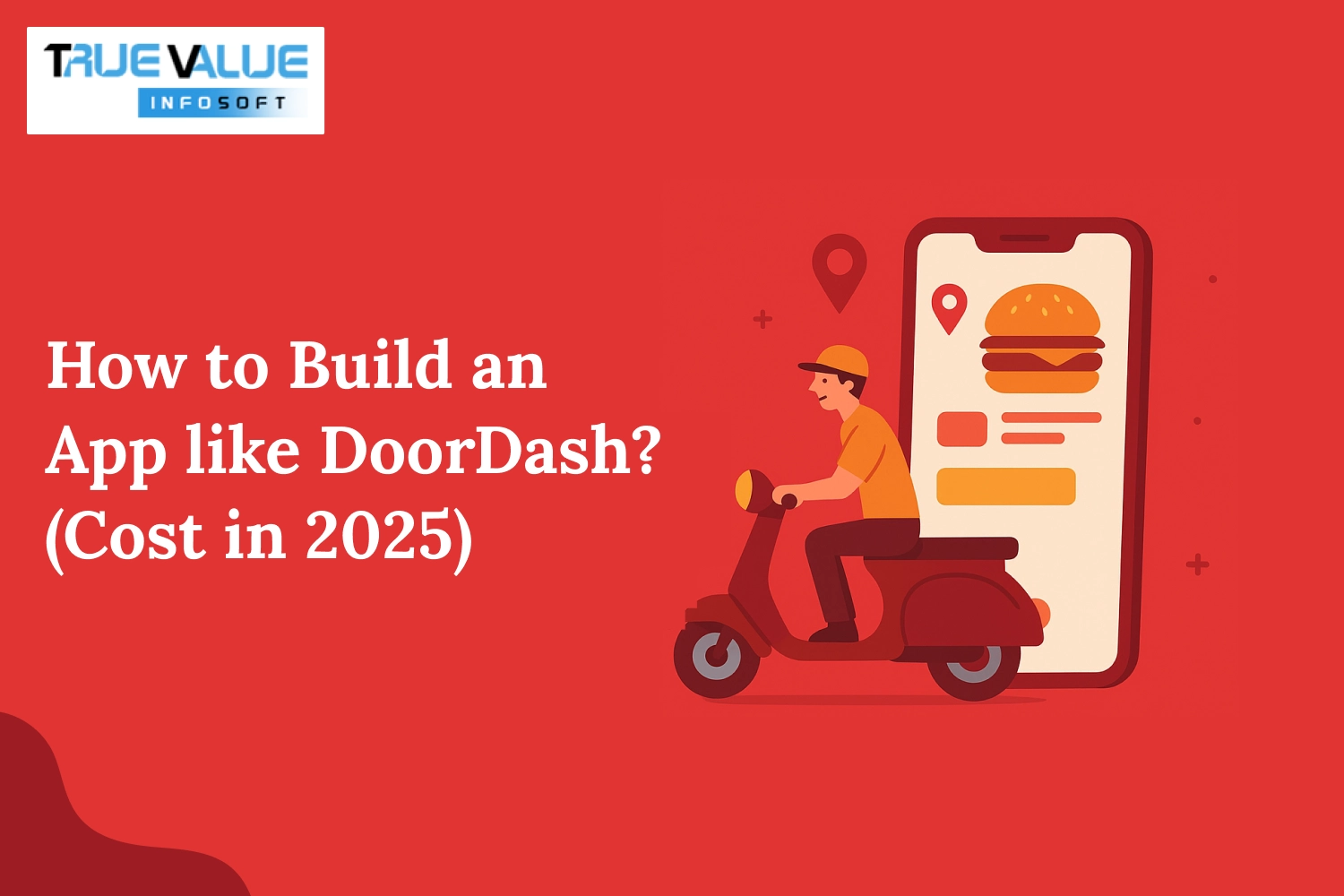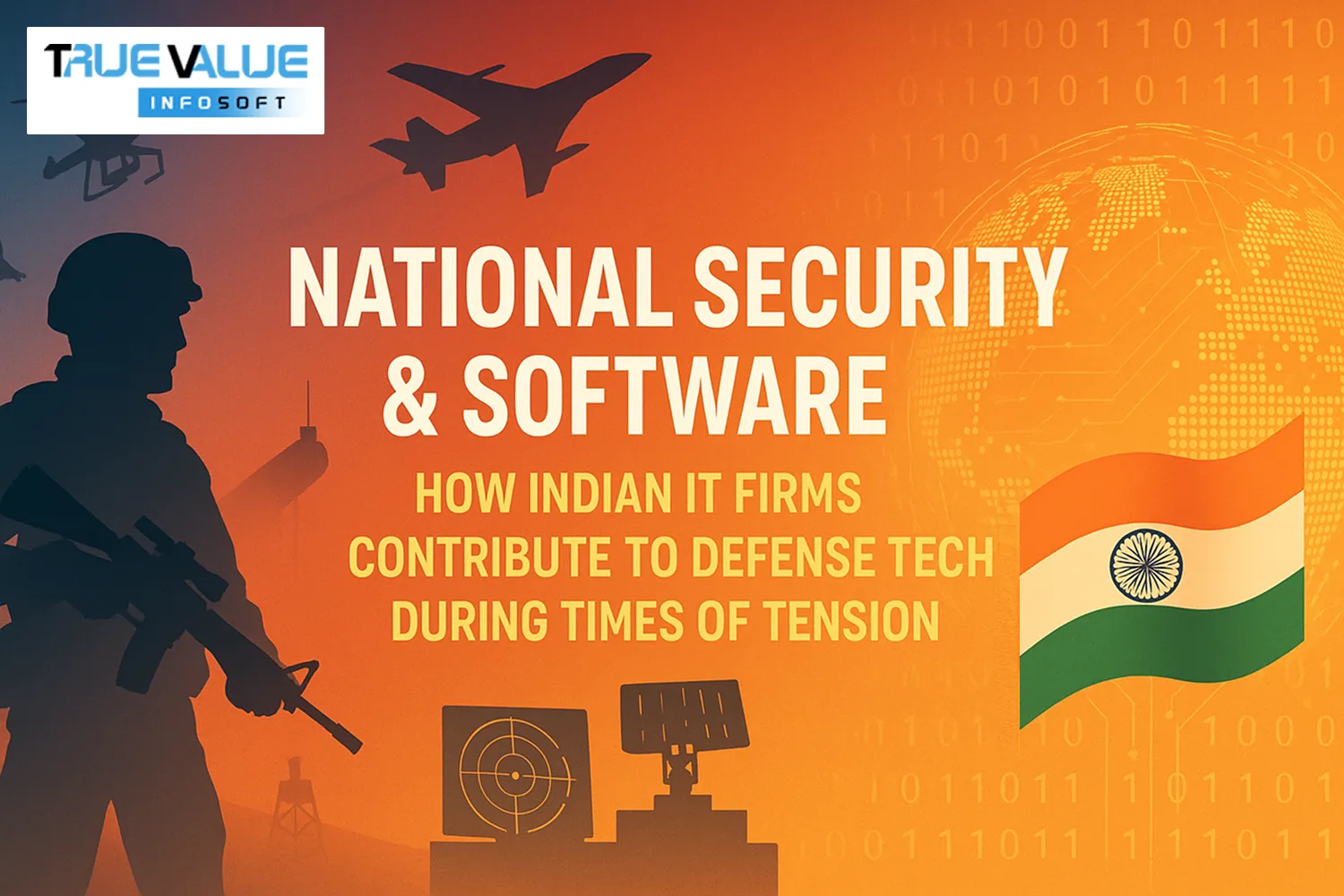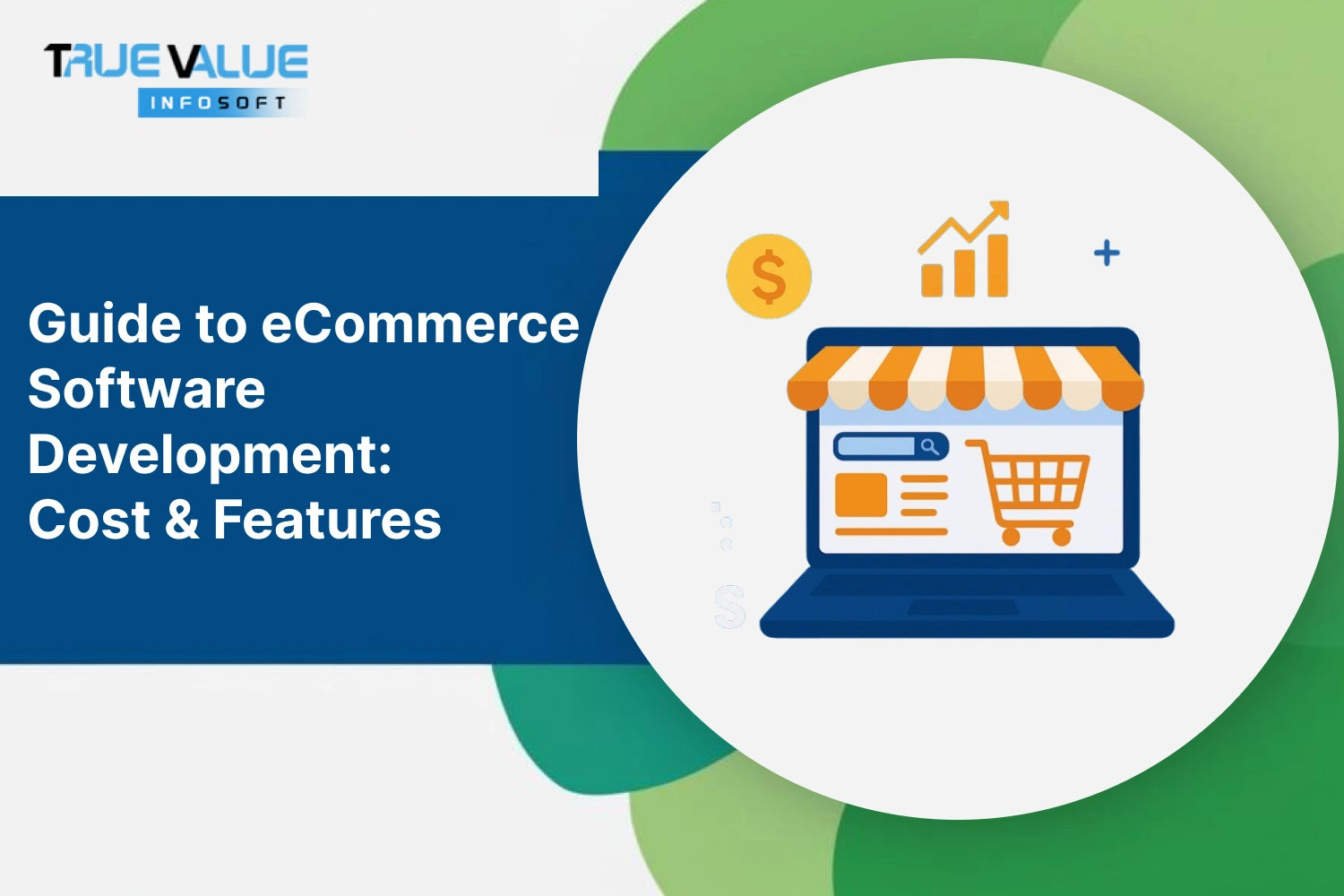Introduction
Are you wondering how digital transformation is reshaping the future of healthcare in 2025? The answer lies in the emergence of innovative healthcare software solutions that are transforming patient care, hospital operations, and medical research. In this ever-evolving landscape, True Value Infosoft, the best app development company in India, is at the forefront of developing cutting-edge healthcare applications that not only meet but exceed industry standards. From AI-powered diagnostics to telehealth platforms, the integration of software in healthcare has become a necessity rather than a luxury.
With increased focus on patient-centric care, data-driven decisions, and automation, healthcare software is helping stakeholders improve efficiency, enhance experiences, and drive better outcomes. Let’s explore the 15 most significant types of healthcare software that are dominating the industry in 2025.
1. Electronic Health Records (EHR) Software
EHR software continues to be the backbone of digital healthcare infrastructure. It stores and organizes patient data, medical history, lab results, and prescriptions in a centralized system accessible by authorized professionals. In 2025, EHR systems are now AI-enhanced and integrated with cloud for real-time access and interoperability.
Key Features:
- Secure patient data management
- AI-driven predictive analytics
- Integration with wearable devices
- Mobile access for physicians
2. Telemedicine Software
Telemedicine platforms saw exponential growth post-COVID, and in 2025 they are more advanced than ever. These tools allow healthcare professionals to consult patients remotely via video, audio, and chat functionalities.
Key Features:
- HIPAA-compliant video consultations
- Remote diagnosis and prescription
- Multilingual support
- AI chatbots for pre-screening
3. Medical Practice Management Software (PMS)
This software streamlines the day-to-day administrative and financial operations of medical practices, from appointment scheduling to billing and insurance claims.
Key Features:
- Billing and invoicing
- Patient scheduling
- Insurance verification
- Real-time analytics dashboards
4. Hospital Management Software (HMS)
Designed for large-scale hospitals and multi-specialty clinics, HMS automates a wide range of functions including administration, finance, inventory, and patient records.
Key Features:
- Integrated patient care system
- Supply chain management
- Staff rostering and payroll
- Inpatient and outpatient tracking
5. Medical Imaging Software
With the rise of advanced imaging technologies, this software enables the visualization, analysis, and storage of medical images like X-rays, MRIs, and CT scans.
Key Features:
- 3D reconstruction
- AI-assisted image analysis
- Integration with PACS
- Cloud-based storage
6. Clinical Decision Support Systems (CDSS)
CDSS software aids healthcare professionals in making clinical decisions by analyzing patient data and medical knowledge.
Key Features:
- Evidence-based treatment suggestions
- Risk alert systems
- Drug interaction warnings
- Integration with EHR
7. E-Prescription Software
In 2025, e-prescription systems are smarter and more secure, allowing physicians to digitally send prescriptions to pharmacies.
Key Features:
- Drug interaction checker
- Digital signature
- Real-time pharmacy inventory sync
- Prescription history
8. Healthcare CRM Software
This type of CRM software helps healthcare providers manage patient relationships, improve communication, and boost engagement.
Key Features:
- Automated appointment reminders
- Patient segmentation
- Feedback collection
- Campaign management
9. Health Information Exchange (HIE) Software
HIE software enables the secure sharing of patient information across various healthcare organizations.
Key Features:
- Real-time data exchange
- Cross-platform interoperability
- Consent management
- Audit logs for compliance
10. Medical Billing Software
Automating the complex process of billing and claims management, this software ensures faster reimbursements and fewer errors.
Key Features:
- ICD-11 coding support
- Claim tracking
- Denial management
- Financial reporting
11. Patient Portal Software
Patient portal software allows patients to access their medical data, book appointments, and communicate with their doctors.
Key Features:
- Appointment scheduling
- Lab results viewing
- Prescription refills
- Secure messaging
12. Remote Patient Monitoring (RPM) Software
With wearables and IoT devices becoming mainstream, RPM software is vital for continuous monitoring of chronic conditions.
Key Features:
- Real-time health tracking
- Alerts and notifications
- Device integration (glucose monitors, heart rate)
- AI analytics for trends
13. Mental Health Software
Increased awareness and demand for mental health services have led to the development of specialized mental health software.
Key Features:
- Cognitive behavioral therapy (CBT) tools
- Virtual therapy sessions
- Mood tracking
- Anonymized support communities
14. Laboratory Information Management Systems (LIMS)
LIMS software helps manage laboratory operations, sample tracking, and testing processes.
Key Features:
- Workflow automation
- Sample lifecycle tracking
- Quality control integration
- Reporting and audit tools
15. Medical Research and Clinical Trial Software
Designed for researchers and clinical trial organizations, this software supports study design, data collection, and analysis.
Key Features:
- Protocol management
- Electronic Data Capture (EDC)
- Real-time monitoring
- Regulatory compliance (FDA, EMA)
Why Choose True Value Infosoft for Healthcare App Development?
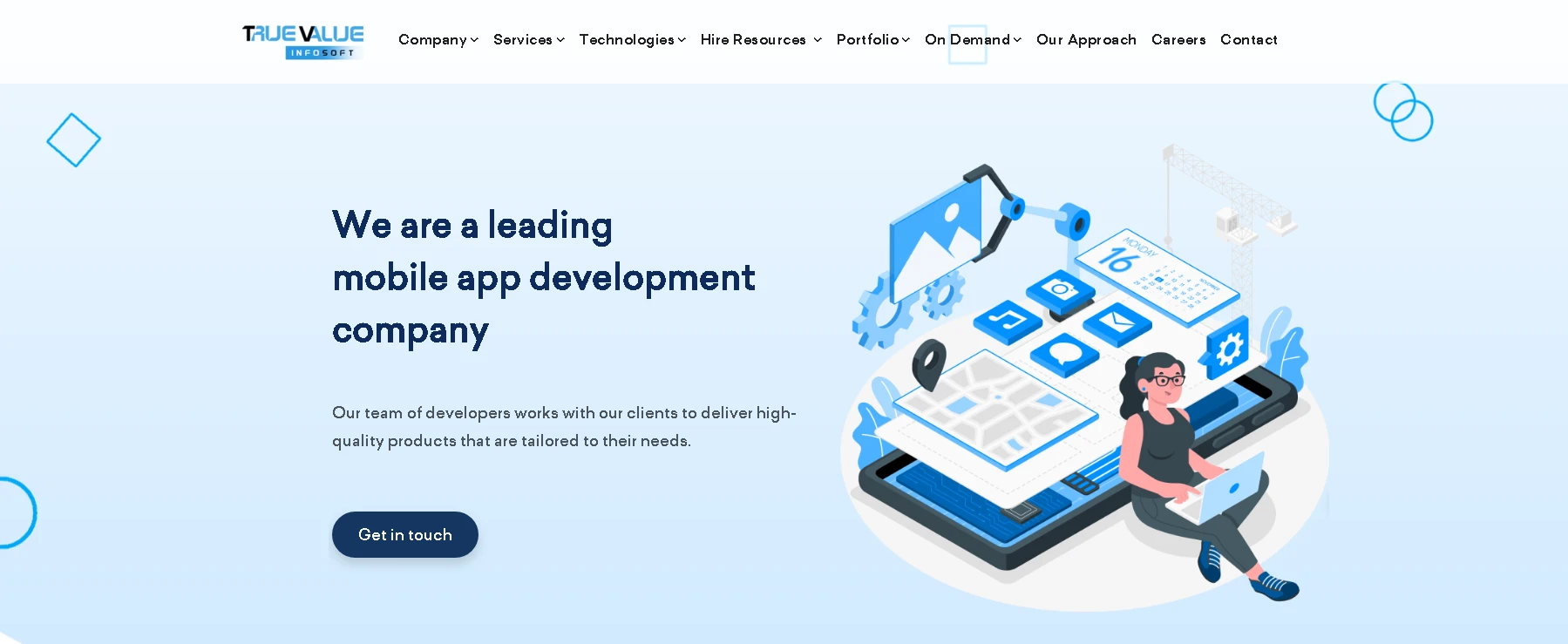
At True Value Infosoft, we specialize in crafting customized healthcare software solutions that align with modern industry standards and future-ready technologies. Here’s why we are the top choice:
- Healthcare Expertise: Decade-long experience with successful healthcare IT implementations.
- Innovation First: Integration of AI, ML, blockchain, and IoT to future-proof your software.
- Compliance Ready: Adherence to HIPAA, HL7, GDPR, and other medical data regulations.
- Custom Development: Scalable and personalized app development services tailored to your needs.
- End-to-End Services: From idea to deployment and maintenance, we handle it all.
- Global Clientele: Trusted by healthcare providers, hospitals, and startups across the world.
Whether you're looking to build a remote monitoring app or a complex hospital management system, True Value Infosoft has the skills, tools, and vision to bring your project to life.
Conclusion
The healthcare sector in 2025 is more digital than ever, with software playing a crucial role in improving outcomes, enhancing efficiency, and elevating patient satisfaction. Whether it’s electronic health records or mental health support apps, every category of healthcare software brings unique advantages to providers and patients alike.
True Value Infosoft, the top app development company in India, is proud to be contributing to this healthcare revolution by building next-generation solutions that prioritize innovation, security, and user-centricity. Let us help you transform your healthcare vision into a powerful digital reality.
FAQs
Electronic Health Records (EHR) systems remain the most widely used, thanks to their central role in storing and managing patient data securely.
Costs vary depending on complexity, features, and compliance needs. On average, a custom healthcare app in 2025 can range from $20,000 to $250,000.
Yes, healthcare software must comply with regulations such as HIPAA, HL7, GDPR, and local government policies to ensure patient data protection and interoperability.
Absolutely. True Value Infosoft specializes in integrating advanced technologies like AI, machine learning, and IoT to enhance the functionality of healthcare applications.
Development time varies based on project scope but typically ranges from 3 months to over a year for full-featured systems.
